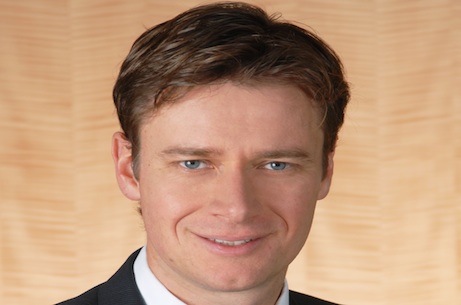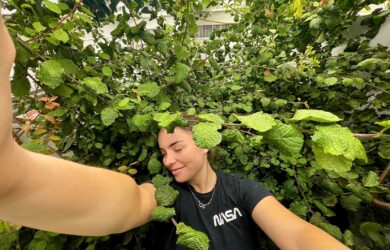
Andrew Robertson has been featured as one of 40 Science and Technology Policy Fellows at the American Assocation for the Advancement of Science to mark the fellowship's 40th anniversary.
Gates Cambridge Scholar Andrew Robertson has been featured as one of 40 Science and Technology Policy Fellows at the American Assocation for the Advancement of Science to mark the fellowship’s 40th anniversary.
The 40, 10 from each decade, represent the 2,800 fellows who have been elected since the fellowship was established in 1973.
The aim of the Fellowships – originally called Congressional Science & Engineering Fellowships – is to help improve policy with scientific and technical input. The scheme started with seven fellows. Now more than 250 fellows are elected a year to work with both legislative and executive branches of government.
Andrew’s AAAS profile highlights his pioneering traits. He was one of the first Gates Cambridge Scholars when the programme launched in 2001 and was the first alumnus to serve on the Gates Cambridge Board of Trustees and on its admissions panel for life sciences.
Andrew [2001], who did a PhD in Genetics at the University of Cambridge, says of the Fellowship programme: “The programme was a critical turning point in my career. During my PhD, I become much more interested in the environment in which scientific research happens, and in turn the impact that science has on the world around us. The AAAS fellowship gave me the opportunity to roll up my sleeves and engage policy making that directly affects this environment.”
During his two years at the US Department of Health and Human Services in 2005 and 2006, Robertson’s portfolio included projects such as the National Science Advisory Board for Biosecurity. He also helped develop global surveillance networks for Pandemic Influenza. “Understanding the science was essential, but I learned the importance of the legal, economic and cultural perspectives as well,” he says.
Following law school after the Fellowship, Robertson took a position as the chief policy officer for BIO Ventures for Global Health. During his tenure there, he built on his AAAS fellowship experience and collaborated with policymakers and drug manufacturers to spearhead a programme that provides regulatory incentive for firms to develop drugs and vaccines for neglected and tropical diseases. The result was the updated Priority Review Voucher Programme, signed into law as part of the FDA Safety and Innovation Act of 2012.
In his current post as director of Global Regulatory Policy for Merck & Co, Robertson collaborates with industry and government leaders to improve the ecosystem for drug development. “I focus on the environment in which the FDA and other regulatory authorities consider the approval of new products,” he says. As a key point of contact for government leaders and interest groups, he develops and analyses opportunities to improve the speed at which patients can receive safe, life-saving medicines.
“I am working in a very multidisciplinary arena,” he says. “I interact with lawyers, medical doctors, and scientists. The AAAS fellowship underscored for me the value of engaging different perspectives on these complex issues.”












